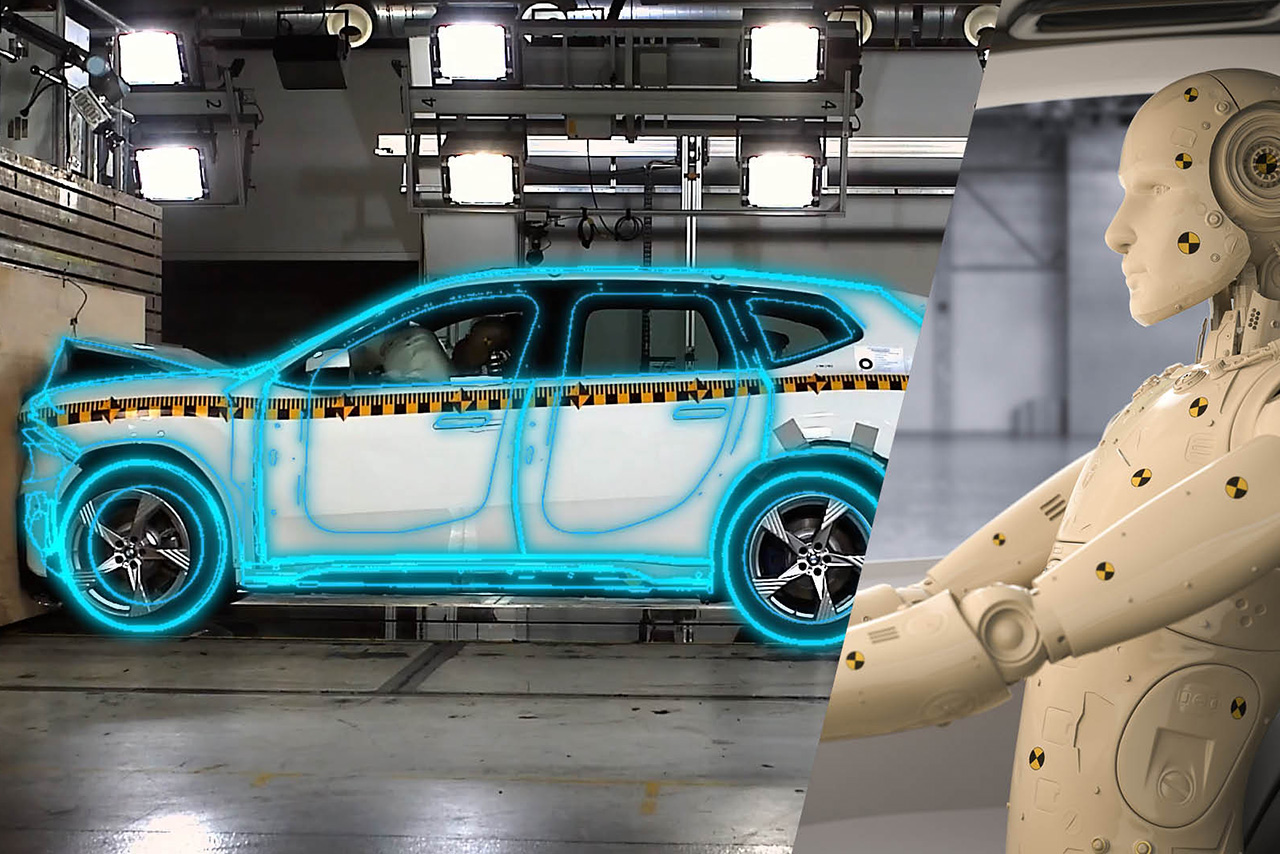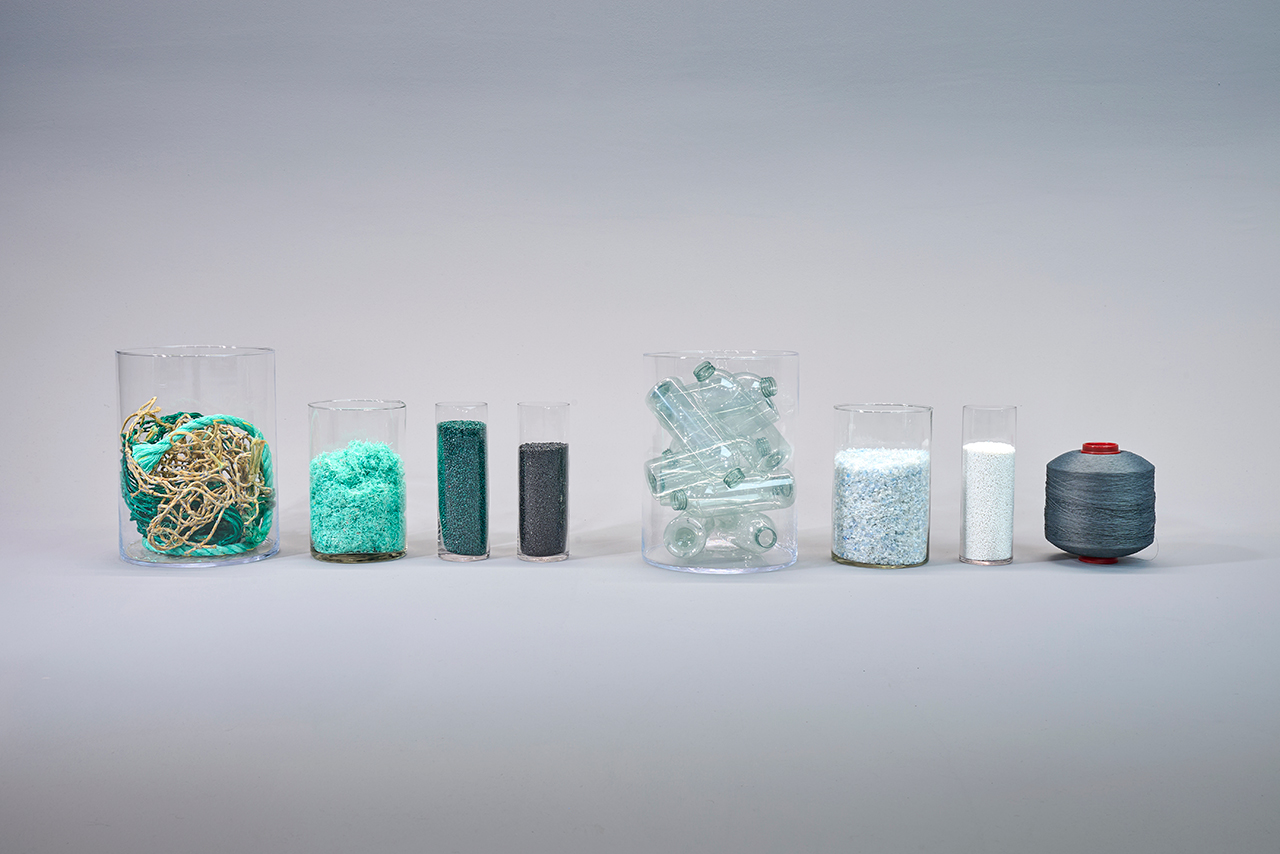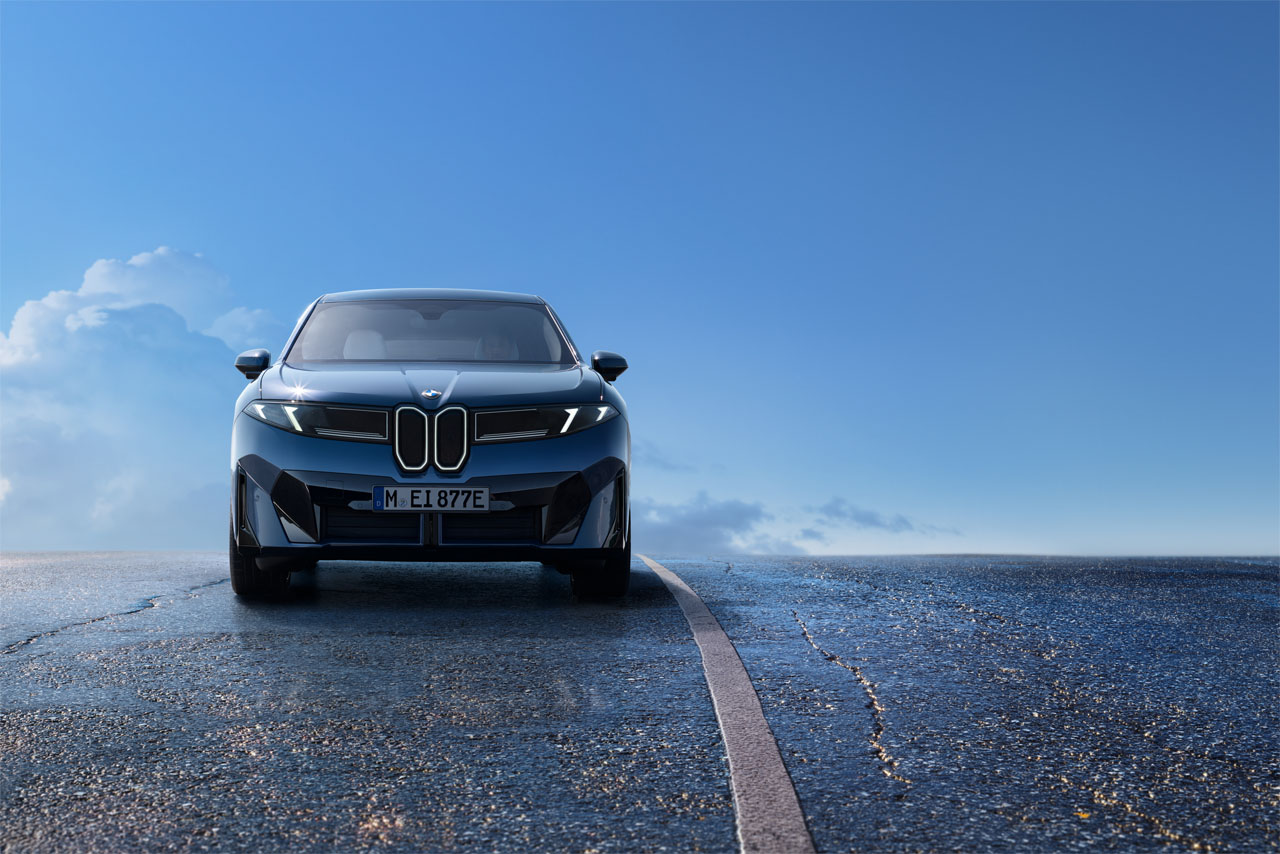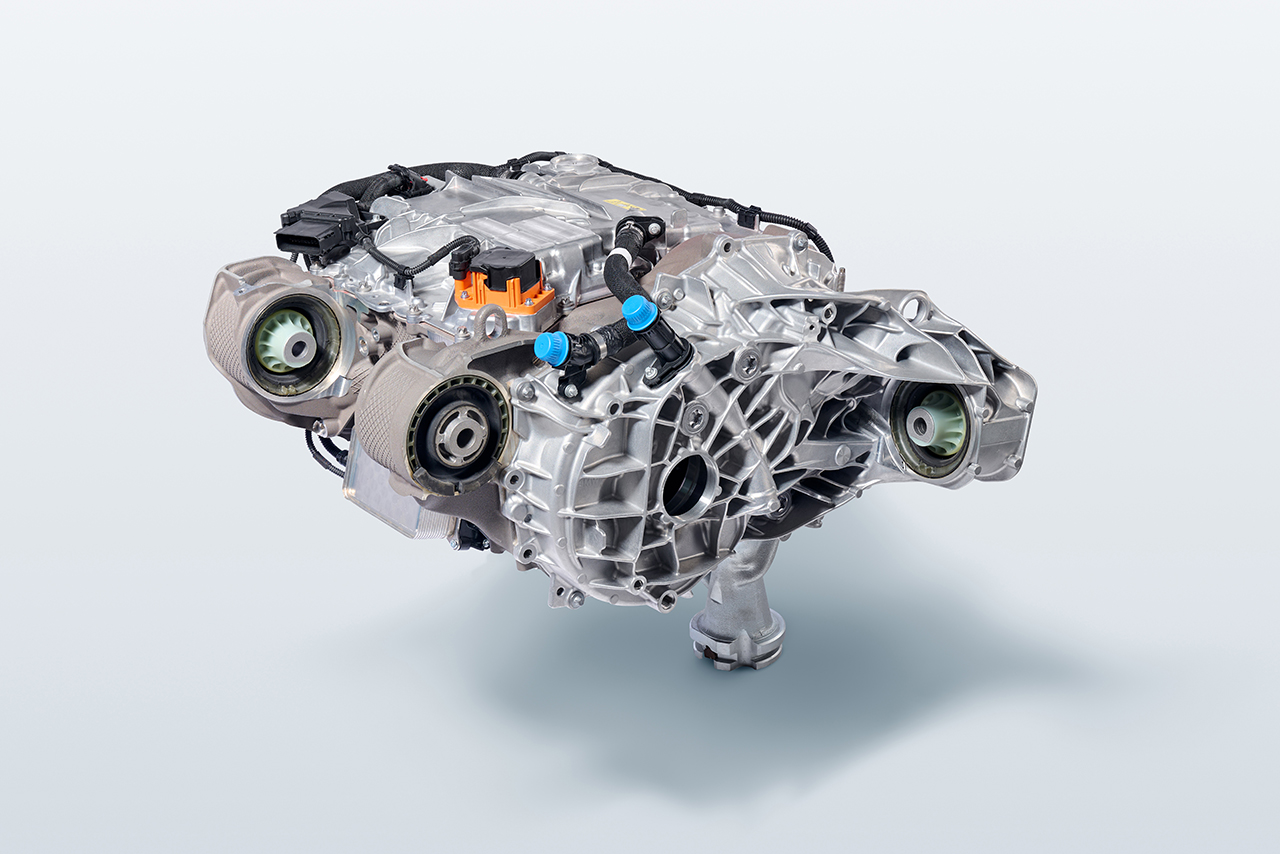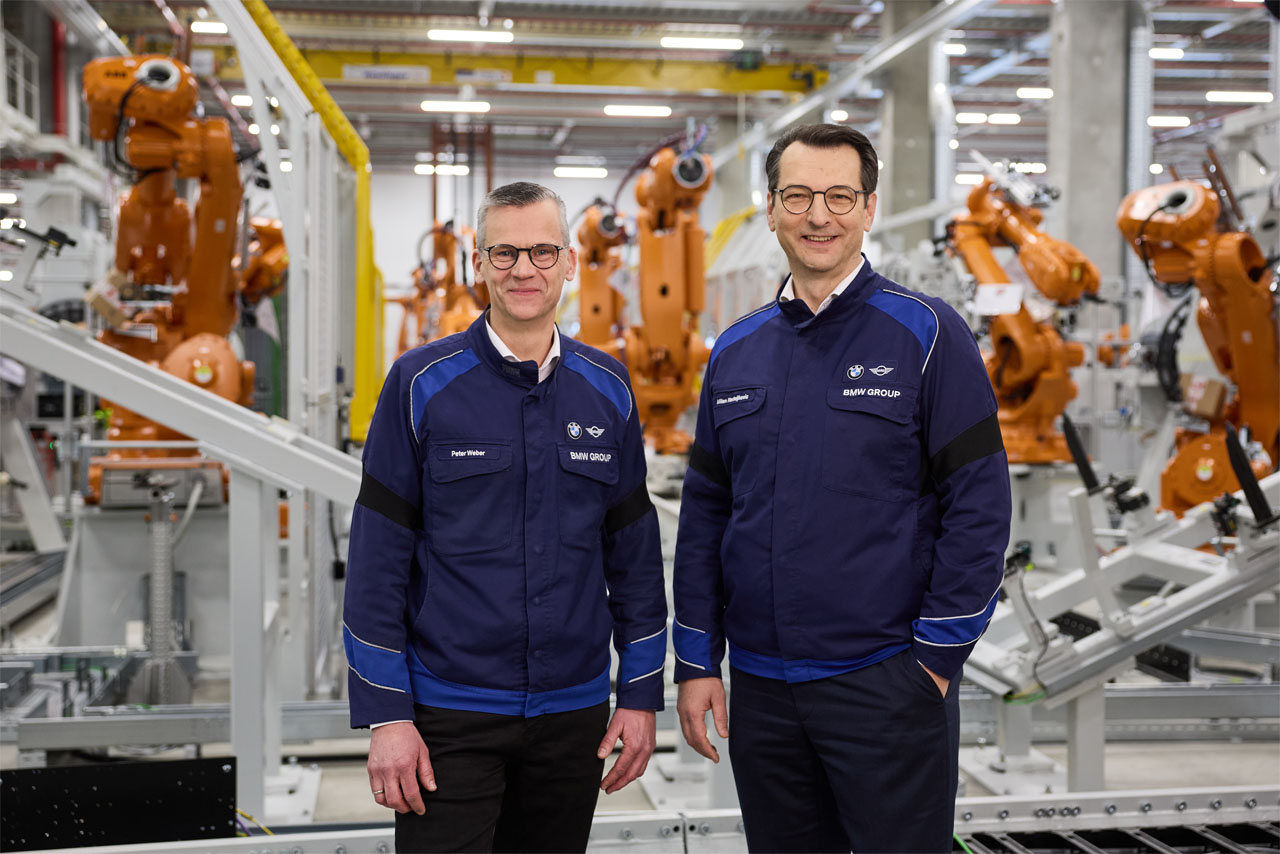The new plant in Debrecen is set to take the BMW Group into a new era of production. The first BMW Group car plant worldwide to operate entirely without fossil fuels, it is fully digitally connected and makes its own high-voltage batteries on site. Late October will see it launch series production of the new BMW iX3.

Efficient, sustainable, digital:
The new BMW Group Plant Debrecen.
New BMW iX3
marks the start.
The BMW Group is about to enter a new era in production: in late October, series production of the first Neue Klasse vehicle will begin, with the BMW iX3 rolling off the assembly lines when the newest, most innovative manufacturing facility in the global network officially goes into series operation.
“The start of series production for the BMW iX3 signals a new era of automotive manufacturing. Our new plant in Debrecen has been designed and built fully in line with our strategic vision of the iFACTORY: digital from the very beginning, the plant will offer a new dimension in efficient production without fossil fuels,” says Milan Nedeljković, Member of the Board of Management of BMW AG responsible for Production.
Debrecen:
Plant of the future.
Plant Debrecen embodies the principles of the BMW iFACTORY strategy, with streamlined, efficient structures, responsible resource management, economical use of cutting-edge innovations and a strong focus on employees. It also has a great many innovative systems and processes for which the BMW Group has registered new patents.
“We have taken on the challenge of building a completely new vehicle as the first job at an entirely new plant – and doing so in the leanest, most efficient way possible. We have simplified processes, reduced complexity, digitally validated each individual operation and systematically leveraged expertise across our global network. The result is this plant, with its efficient production, innovative processes and the flexibility to integrate additional models,” says Hans-Peter Kemser, Plant Director at Debrecen
As with any new model, after production starts, capacity for the new BMW iX3 will be ramped up in stages. Made in Debrecen, the BMW iX3 will be first to showcase the latest design and technology innovations – which will also be integrated into 40 further new models and model updates by 2027.


From virtual factory
to reality.
BMW Group Plant Debrecen was to embody the guiding principles of the BMW iFACTORY right from day one. Planned and structured fully digitally, its virtual start of production was in March 2023, in the BMW Group’s Virtual Factory. This allowed every operation to be tested in advance, as though in the real world, and the production lines to be installed in the actual plant exactly as they were in the digital twin.
Plant Debrecen’s production processes were engineered for efficiency from the start. In the press shop, for instance, an optimal value stream and state-of-the art systems have been proven to enhance productivity. In keeping with its tried-and-tested strategy of using identical tools and presses at every site worldwide, the BMW Group can optimise capacity utilisation within the network, use the same press tools across different locations and provide targeted training for staff within the production network. Fully digital planning benefits the body shop in particular, where every stage of every process was virtually simulated and validated beforehand to determine the ideal value stream and the perfect position for each of the nearly 1,000 robots.
Close collaboration between development and production right from the early stages is now paying off: as well as significantly enhancing efficiency, the number of different joining techniques has been vastly reduced – and with it, overall complexity. Solutions that were already considered in early development are now reflected in the details of the Neue Klasse, such as the invisible door seals, which visually connect the door and window to create a unique look, or the expanded space for the battery, which means more range and performance for the BMW iX3.


Completely fossil
fuel-free production.
The CO₂e footprint of the BMW iX3 has seen a massive reduction, in which the paint shop has been instrumental. Production of a BMW iX3 will generate just 80 kg (approx.) of CO₂e (scope 1/2 emissions) – including emissions from the manufacture of in-house parts at other BMW Group facilities such as Landshut. That’s about two-thirds less than from production of existing BMW derivatives. At Plant Debrecen alone, CO₂e emissions per car produced – including from high-voltage battery production – will be about 90 percent lower than at other BMW Group facilities and amount to about 34 kg when Debrecen is operating at full capacity.
Plant Debrecen will also be the first BMW Group car plant to run exclusively on electricity from renewable energy sources – i.e. without fossil fuels such as oil or gas – during normal operations. CO₂e savings from the paint shop alone – which uses a lot of energy – will amount to as much as 12,000 tonnes a year. About a quarter of the plant's annual power needs will be met by the 50‑hectare on-site photovoltaic system. Any surplus solar energy this generates, for example on non‑working days, will be stored in a 1,800 m³ thermal storage system with 130 MWh capacity. Additional energy savings of up to 10 percent will be generated by an innovative heat grid that recovers waste heat from the compressed air supply, drying ovens and cooling systems and returns it to the cycle.


AI ensures premium quality
on the production line.
Assembly, too, is fully digitally connected for greater efficiency. The centrepiece is the AIQX (Artificial Intelligence Quality Next) platform. Developed in-house, this uses sensors and cameras to carry out automated quality processes and generate data that is evaluated by AI to provide real-time feedback to employees on the line. Looking ahead, vehicles on the line will also play an active role as connected participants in the industrial IoT (Internet of Things) ecosystem, analysing themselves and flagging up anomalies in real time.
The “finger structure” of the plant building is an optimised version of the layout at BMW Group Plant Leipzig and allows 80 percent of all parts to be delivered directly to the appropriate point on the assembly line. High-voltage batteries are brought directly from production to installation points by autonomous tugger trains, while Smart Transport Robots deliver smaller components – also autonomously – to the assembly line. The depth of digitalisation in logistics is unprecedented, with internal and external databases now fully linked and a great many analysis tasks that were previously manual now becoming automated. As a result, well-structured and analysed information is available at any time – at the push of a button.


Local battery production:
Short distances, fast assembly.
Developed in-house, the BMW Group’s new high-voltage batteries will be manufactured by means of highly intelligent production processes. Plant Debrecen will be the first of five plants worldwide to launch series production of Gen6 high-voltage batteries, using new processes that were developed and tested at pilot plants beforehand. Ramp-up will be supported by AI, data analytics and constant knowledge-sharing within the production network. Processes will be optimised and employees trained with the help of digital twins and comprehensive AI databases. What’s more, seamless inline quality controls and 100 percent end-of-line monitoring will ensure a fully zero-defect approach. In keeping with the principle of “local for local”, high‑voltage battery assembly will take place directly on site, with short distances and clearly enhanced efficiency.
Connected expertise:
Debrecen as a hub.
BMW Group Plant Debrecen is the first production site in the company’s network that is not linked with a specific primary plant of its own. Instead, it combines best practices from various locations worldwide. A key advantage is that the plant’s current 2,000-plus employees can be trained within the network, benefiting from the expertise of colleagues in places like China, South Africa, Mexico, the US and Germany. Colleagues from across the global network get to share their technology insights on location in Debrecen, returning to their own facilities with new-found expertise from Debrecen, especially around production of the Neue Klasse – a win-win for all of the BMW Group’s plants.










